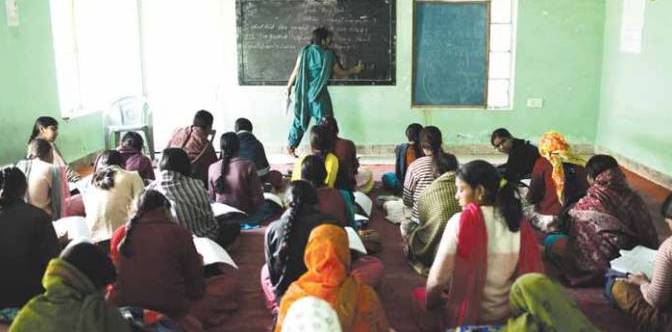 A new study looks at the need to ensure all children complete an inclusive quality education in the Commonwealth [Credit: Bernice Wong / Plan]
A new study looks at the need to ensure all children complete an inclusive quality education in the Commonwealth [Credit: Bernice Wong / Plan]
Commonwealth countries are well-known global hotspots for child marriage. Seven members – Bangladesh, India, Mozambique, Malawi, Nigeria, South Sudan and Uganda – belong to the global list of 20 countries with the highest rates of child marriage.
Together, these countries account for a majority of the child bride population worldwide. According to estimates provided by the United Nations Human Rights Council, over 140 million girls will be married before their eighteenth birthday over the next decade and almost 50% of these are in India and Bangladesh.
Therefore, ending child marriage within South Asian countries in the Commonwealth is critical to achieving Sustainable Development Goal (SDG) Target 5.3 (to eliminate child marriage under 18 by 2030) at the global level.
Most governments in Commonwealth countries agree on the serious nature of the problem and have national laws prohibiting or penalizing child marriage. But laws are not enough.
We have much to learn from other efforts at preventing child marriage that go beyond the enactment and enforcement of laws. They range from rights-based solutions around empowerment to those that emphasize financial incentives as well as education-focused schemes.
A recent Commonwealth Society report ‘Preventing Child Marriage in the Commonwealth: The Role of Education’ stresses the centrality of education in preventing child marriage. While the report acknowledges that the practice of child marriage is complex and not driven by a single factor, it maintains that ‘education is one of the most significant factors for delaying the age at which girls marry’ and ‘education has proved to have a strong correlation with lower rates of child marriage’.
Similarly, a World Bank report notes that girls with no education were six times more likely to enter into a child marriage compared with girls with high school education in 18 of the 20 countries with the highest prevalence of child marriages.
Sajeda Amin Population Council, New York, USA, M. Niaz Asadullah Faculty of Economics and Administration, University of Malaya, Kuala Lumpur, MalaysiaCorrespondencem.niaz@um.edu.my, Sara Hossain Bangladesh Legal Aid and Services Trust & Zaki Wahhaj University of Kent, Canterbury, UK



